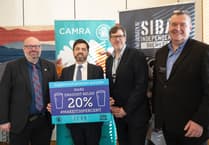July 2018 sees the local animal rescue organisation celebrate its 10th year in creation. Back in 2008 a small group of friends decided to offer refuge to animals (mainly dogs) that where facing euthanasia, this was mainly due to lack of homes or rescue spaces where the animals would be safe until homes could be found.
Since the small beginnings the local organisation has grown into quite a large scale affair claiming support from worldwide patrons, and in the past 10 years has rescued approximately 9,000 animals.
The centre now operates rescuing all domestic animals including that of an agricultural nature.
Working on the motto of ‘everything from hamsters to horses’ the centre works tirelessly to help as many animals in need as possible.
Greenacres first aim is to find the animal in question a forever home, but over time they have built up a large network of groups and centres that animals are sometimes relocated to. This can sometimes speed up the adoption or maybe be a more suitable setting for the breed/species.
In 2016, Greenacres became responsible for the care of all dogs found straying by Pembrokeshire County Councils Dog Wardens. They are held at the centre for the statutory seven days to allow the owners to find them. If unclaimed all dogs automatically transfer to the care of Greenacres with no discrimination to breed, age or medical condition. All are welcomed and treated equally.
As always, Greenacres works on all animals that are rehomed are neutered, microchipped and up to date with all parasite treatment, they also have rescue backup for life, so if at any time an adopters situation changes and they can no longer give the adopted animal the life they have agreed to, Greenacres will accept the animal back into their care to ensure their long-term safety.
Greenacres is also not only for animals, they are proud to promote positive relationships with Pembrokeshire College and many of the local schools for work placements and Duke of Edinburgh awards, local care homes and care providers, Independent training providers and local authority placements. This gives many people access to animal based learning that would maybe not always available.




